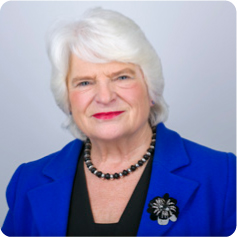References
The complaints agenda for the surgical and non-surgical aesthetics market

Abstract
Sally Taber provides an update on issues that have been raised by members of the public as part of the Joint Council for Cosmetic Practitioners' complaints procedure

 Resolved complaints reveal much about low-quality practices
Resolved complaints reveal much about low-quality practices
This article will bring readers up to date on a range of ongoing issues that have been raised by members of the public as part of the Joint Council for Cosmetic Practitioners' (JCCP) complaints procedure.
The JCCP provides a Professional Standards Authority (PSA)-accredited register for the non-surgical aesthetics sector. It offers an informed and legitimate point of enquiry for members of the public who are seeking to learn more about standards that operate within in the sector. The JCCP is an appropriate authority to enable members of the public to raise issues of concern about practitioners when these concerns have not been responded to locally. The JCCP places public protection and patient safety as the focus of its activities. For example, the JCCP is concerned, but not surprised, to receive a significant number of complaints regarding courses that are provided by some training companies. These companies claim that practitioners who do not possess a regulated qualification are safe to undertake training at Level 3 (non-invasive cosmetic procedures) and then can be fast tracked within a matter of weeks or months to practise invasive aesthetic procedures, such as the injection of toxins or the insertion of dermal fillers at Level 7. At these higher levels, there is a requirement for a practitioner to have achieved a significant body of clinical knowledge, as well as the possession of specialist information and practical skills to treat patients both safely and effectively. In the JCCP's opinion, accelerated training pathways, such as those used by many of these companies, fall far short of the required Level 7 standard set out in both the Health Education England (HEE) (2015) and JCCP frameworks (2018). In the absence of such standards being met, the claims that these companies make in regard to their students being able to practise safely are both misleading and exaggerated. Rapid and unmoderated acceleration through such training pathways occurs for regulated professionals just as much as it does for unregulated beauty therapists and lay personnel. The result is to expose fee-paying members of the public to unduly risky, and possibly sub-optimum, treatments performed by inexperienced and inappropriately trained practitioners. The JCCP recognises the pressures faced by the industry, but it suggests that closer attention should be paid to promoting professional standards and to encourage appropriately qualified and experienced practitioners to discourage inadequately trained practitioners from practising unsupervised. All education and training companies should also be required confirm to one nationally approved standard to promote safe practice for members of the public.
Register now to continue reading
Thank you for visiting Journal of Aesthetic Nurses and reading some of our peer-reviewed resources for aesthetic nurses. To read more, please register today. You’ll enjoy the following great benefits:
What's included
-
Limited access to clinical or professional articles
-
New content and clinical newsletter updates each month


